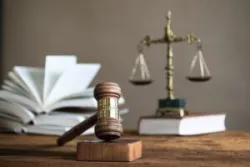
If you or a loved one was arrested for an offense, you might have been released from custody after making bail. Depending on the situation, the bail amount may have been high, and because the arrest was unexpected, paying bail might have financially strapped you. One question you might have is whether or not you’ll receive the money back. The answer: It depends on the circumstances.
There are several different ways you might have paid bail. The type of bond you used can factor into whether or not you’ll get your money back.
- Cash bond: A cash bond is a bond paid with your own money. If pursued this avenue, the entire amount will be returned to you after the conclusion of your (or your loved one’s) trial. This is true whether you were found guilty or acquitted of the alleged crime.
- Property bond: You may also secure release from jail by putting up collateral, such as a house or car, instead of giving the court cash. Similar to a cash bond, at the conclusion of the case, your collateral will be returned to you.
- Surety bond: You might not have had the funds on hand to make a cash bond and turned to a bail bond company to help secure your release from jail. When you have a bail agent write a surety bond, you pay a 10% fee and the bail bondsman presents a legally binding document to the court, ensuring that you (or your loved one) will show up for scheduled proceedings. The fee is a percentage of the total bail amount and an exchange for the bail bond company’s services. It is non-refundable. However, a surety bond may be a more appealing option than a cash or property bond, as you must only pay a portion of the bail, rather than having to put up the entire amount from your own funds or using your property as collateral.
Bond Forfeiture
After making bail, you must abide by certain conditions the judge sets. The terms may include such things as not contacting the alleged victim or any witnesses. One of the major conditions is showing up to court when scheduled for your case. If you fail to abide by the requirements or appear in court, the judge may revoke bail, meaning you would be placed in jail again.
Call (614) 221-0100 today to speak with our experienced Ohio bail bondsman!
Additionally, the bond may be forfeited. Meaning, if you used a cash or property bond, your money will not be returned to you or the property you put up as collateral may be seized. If you went through a bail bond company, the bail agent must put up the full bond amount and you will be financially liable.
Since 1960 Andy Callif Bail Bonds has been helping those arrested in Columbus and the surrounding areas get released from jail. We have the experience and knowledge to guide you through the process and help you understand your rights and obligations upon release. Call us at (614) 221-0100 or contact us online to discuss your situation.
Our Ohio bail bondsman is available 24/7, call us (614) 221-0100!
